They may look terrifying, but house centipedes are generally not dangerous in any way shape or form. In fact, you stand to benefit from having a few in your home. That said, you certainly don’t need them in your home, and most homeowners care more about how to get rid of house centipedes than they do about their potential benefits.
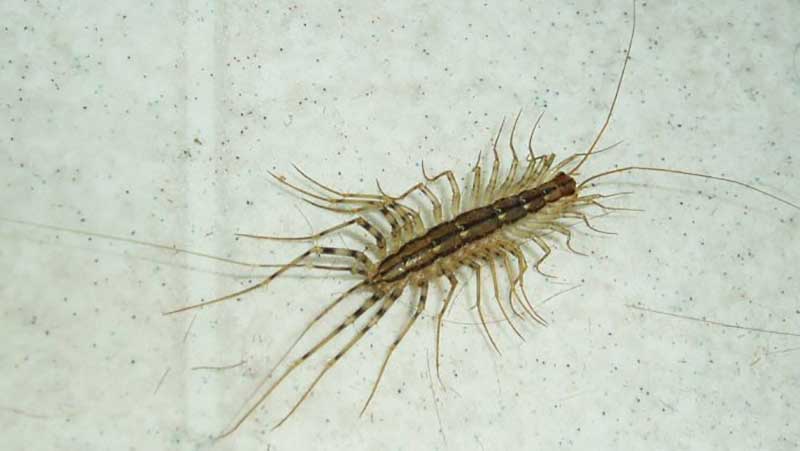
In this guide, we will cover general information about house centipedes and remedies you can use to get rid of house centipedes for good.
Here are the Best Ways to Get Rid of House Centipedes
There are many methods you can use to get rid of these common pests. You could call in an exterminator to help you get rid of these pests, but oftentimes getting rid of house centipedes can be done on your own for a fraction of the cost. For some pests, we recommend seeking professional help right away, but because house centipedes are rather harmless, we usually recommend utilizing do it yourself methods before calling in the pros. While many of the methods are very effective used alone if you really want to solve your problem fast you can try using several products together. For example, you spread boric acid and place traps.
1. Boric Acid for Centipedes
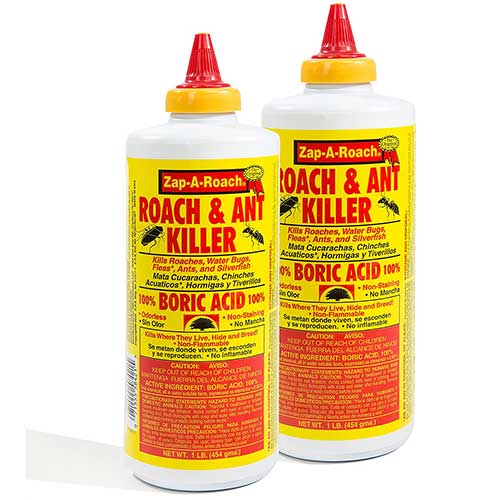
Professional exterminators use boric acid for a wide range of pests, including house centipedes. The product we recommend is Zap-a-roach 100 percent boric acid. Although it is advertised for roaches and ants, boric acid is boric acid and this product works great for house centipedes.
How to use it: For best results, apply boric acid to areas where you see the house centipedes living. Dark corners in basements or attics, crawl spaces, behind baseboards, and other undisturbed areas are favorite hiding places for house centipedes. While boric acid is not nearly as toxic to humans as it is to insects, it is still considered toxic, so be sure to exercise caution not when using boric acid, especially if you have children in your home. Read the product’s bottle/caution labels for further guidance.
2. Trapper Bait Traps for Centipedes
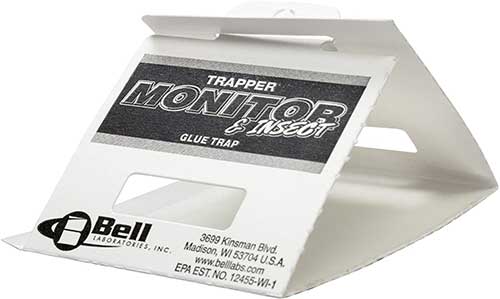
If you don’t like the idea of spreading boric acid or insecticides around your home, traps can be extremely effective for house centipedes if placed properly. There are a number of great traps out there, but the two brands we recommend are listed below.
How to use it: Simply set these in your cold/dark location such as a bathroom sink cabinet, behind your toilet, or other areas you’ve spotted house centipedes.
3. Max Glue Traps for Centipedes
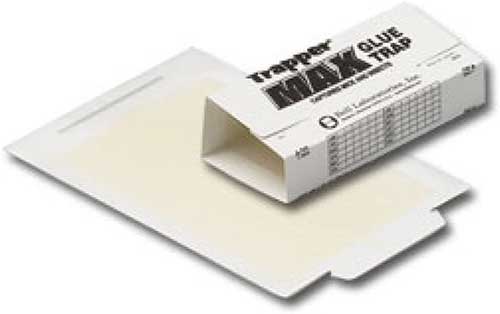
The trap above is another solid option. Placement for this trap will be exactly the same as the first.
4. Insecticides and Sprays Ortho Home Defense
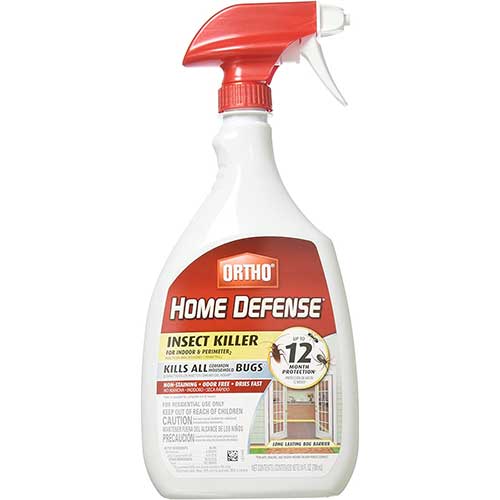
Ortho Home Defense indoor insect killer for indoor and perimeter use. All you have to do when you utilize spray house centipedes favorite hiding places.
Insecticides and sprays are a great way to get rid of house centipedes without ever having to see them. Simply spray areas where the house centipedes frequent. One application provides a protective barrier that acts as a house centipede repellent for up to 12 months. We recommend spraying areas where you see the house centipedes frequenting.
5. LambdaStar Insecticide For Centepides
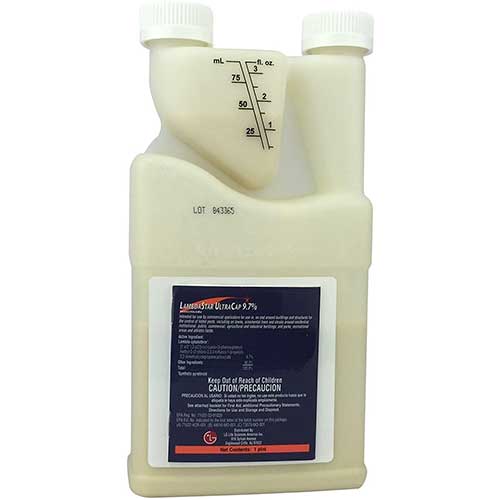
This is one of our favorite multi-purpose pest control products. Lambdastar UltraCap 9.7 is a micro-encapsulated lambda-cyhalothrin formulation that simply works. The insect treatment works indoors and outdoors and also works for mosquitoes.
6. Diatomaceous Earth for Centipedes
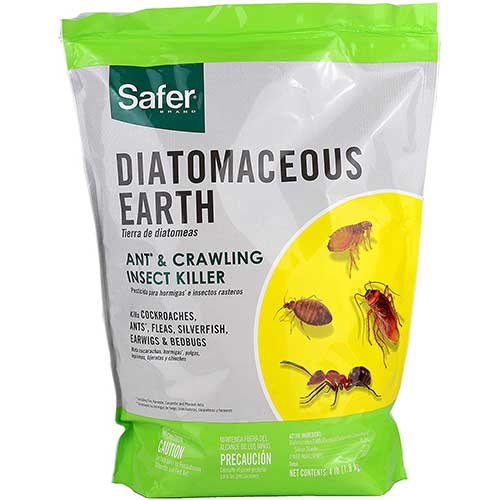
Another effective natural way to repel house centipedes is with diatomaceous earth. You can buy diatomaceous earth that is food grade. It can really help keep house centipedes, and many other bugs away. Simply make a border around your home (outside, inside, or both).
7. Use a Dehumidifier
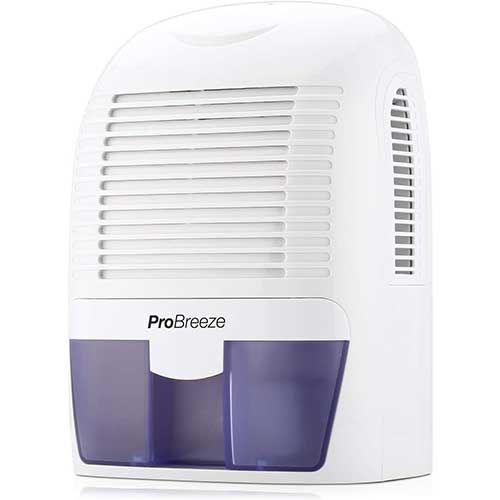
House centipedes love moisture, so getting rid of excess moisture in your home and increasing the temperature a little bit (not to use too much excess electricity of course) is another way to rid your house of these pesky little critters. They like cold and damp, not warm and dry. There are a lot of good dehumidifiers out there that are cheap and effective.
8. Seal Up Points of Entry
As many of you have guessed any pest has a way in, find any cracks or holes and fill them to help keep house centipedes, spiders, and other insects out of the home. Cracks that insects are more likely able to get into your home will be along ceilings, floors, walls, windows, and doors. If you can seal these holes and cracks well enough this will help keep them out. House centipedes like it cold and damp as stated above, another natural way to keep these pests from becoming infested in your home is to make sure the air is right. Buy a humidifier or even a few if you have a larger home.
Related Article: House Centipede vs Silverfish
9. Remove Your House Centipedes’ Food Source
Most of the time, the real problem as to why you may have an infestation with house centipedes is a further infestation of another pest (other insects, termites, etc.) that these centipedes are thriving on. Eliminating these food sources is the best way. Think of house centipedes like stray cats; If you don’t feed them, they go away! Over time, they will go away because they don’t have a food source. They don’t have to eat very often, but if their source of food is eliminated, then they won’t want to come around at all.
10. Peppermint Oil
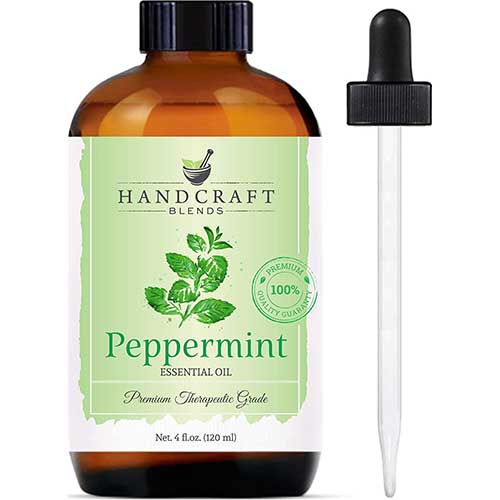
While most professional companies refute the claim that peppermint oil can repel spiders and insects, many homeowners swear by it. Peppermint oil may help repel house centipede and spiders alike as these insects do not like the smell of the peppermint, as well as the oil, can burn the exterior of house centipedes. Create a barrier in the inside of the home with the peppermint oil, along the walls in the rooms more prone to have house centipedes. For the outside of the home, as oil-based products will eventually wash away with the rain, plant some around the home to deter these pests from entering the premises. You can find many products such as Artizen Peppermint Essential Oil (100% natural undiluted oil).
House Centipede Facts (Know Your Enemy)
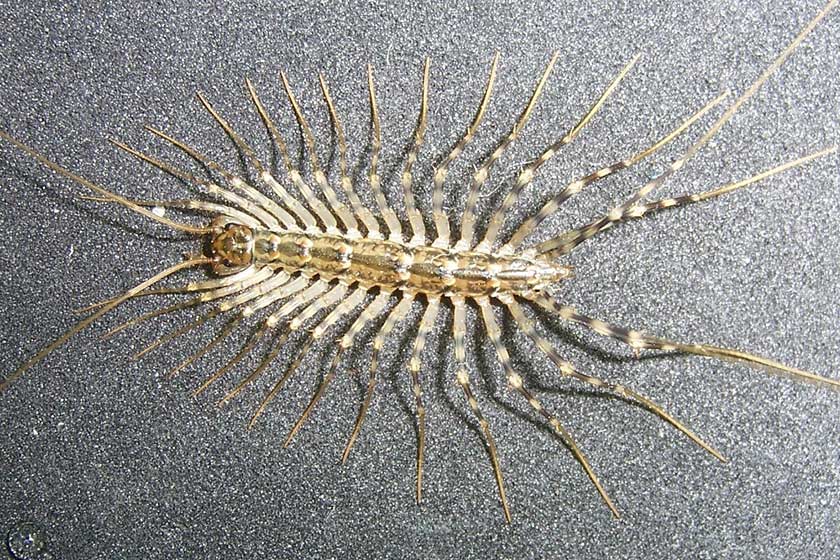
Do house centipedes bite?
While they do have a risk of biting, this typically only happens when homeowners try to pick a house centipede up. Their jaws are weak, and if a bite does occur there is usually no more than slight swelling.
What are house centipedes? How are they similar or different from other centipede species?
Unlike most pests, house centipedes spend almost all of their time indoors. They have a grayish-yellow body with three dark stripes that run along the full length of their back. they are usually 1 to 1.5 inches long, but their long legs make them appear much larger. They also have antenna feelers on both sides of their bodies.
While they originated in Europe in the Mediterranean area, they have made their way into many countries in all parts of the world and are very common even in U.S. homes. House centipedes have much better eyesight than most other types of centipedes.
Where do they live?
House centipedes prefer to live in damp and undisturbed areas of homes like cellars, bathrooms, closets, and in unexcavated spaces under homes. When the temperature and conditions are just right, it is possible to have an infestation. They lay their eggs in the spring, and they actually don’t lay very many (typically around 35). The most common places that house centipedes are known to be found is in bathrooms, but they can also find their ways under faucet cabinets in the kitchen and other areas including bedrooms and office spaces. They are normally out during spring and fall when the weather causes them to find their ways into homes more often.
House Centipede Behavior
House centipedes hunt at night for insects, larvae, and spiders. On average, they live for up to six years. They mate by the male centipede fertilizing an area in front of the female on the ground (or wherever they are inhabiting), and then the female lays their eggs on top of that area.
While they are rumored to bite, they actually do not have venom in their mandibles like other common insects. Instead, they actually sting through their smaller appendages, which actually have a resemblance to pincers (they are not pincers, however, more like external “fangs”). There are many rumors that these bugs are extremely venomous, but in actuality, they only have enough venom upon biting to cause minor localized pain. As long as you don’t pick one up, you really don’t have to worry about them biting you.
Also, do keep in mind that centipedes are very reclusive. If you think a spider is quick at being a recluse (including the actual brown recluse spider), these centipedes run at nearly 1 ½ feet per second! Usually, at the sign of light, vibration, or even motion, these creatures are blindingly quick at getting out of the way. And with faceted eyes, as stated above, they can see many things all around them.
Can my home become infested?
It is uncommon to have a full-blown infestation of house centipedes, as there are normally only a few in a household. However, it is possible with the right conditions to have a full-blown epidemic of these centipedes in your home. In this guide, we will show you what you can do if you have an infestation of house centipedes, as well as general information about them, and why if you only have a few in your home, you actually don’t want to get rid of them.
Are House Centipedes Good or Bad?
House centipedes are generally not bad at all. As a matter of fact, many people inform you not to bother them, because they generally get rid of other pests in your home. From the common silverfish, even to pesky spiders, these creatures are what is called insectivores, so they only eat other insects. They also feed on mites, bed bugs, crickets, termites, ants, and many other small insects, and are actually helpful in a home if there are only a few. And being harmless, they are nothing more than a nuisance in most cases.
What if all of these methods don’t work?
We all know that sometimes home remedies and even other non-home remedies don’t work 100% of the time (aside from smashing every house centipede). Even professional exterminators know that no treatment is 100 percent guaranteed, which is why many companies offer to come back for free within a certain number of days if the initial treatment is not effective. That said, if you have exhausted your DIY options, it may be time to call in the big guns. Calling your exterminator for help can sometimes be hard, but the only thing it usually is hard on is your pride.
Have no fear, however! That’s what exterminators are there for, and they don’t judge because of infestations. It happens. Sometimes, the chemicals and tools of their arsenal are simply unobtainable by home individuals as many of the products that an exterminator will use on your home for insects is more of an industrial-strength product which is not on the market for non-professional use.
Another thing to think about when you must call the exterminator is how much time it will take, and the cost-effectiveness of it compared to other alternatives. Be sure to let your exterminator know of any possible other insects you’ve seen an abundance (or not an abundance of), as these may be the underlying cause of your house centipede infestation rather than anything else.
Things to explain to your exterminator when you contact them are (but not limited to):
- Where your children play: Let them know areas where your children will have easy access to so they can avoid spraying where there is not only high traffic but accessibility to children. Children – toddlers and babies especially – tend to touch things and put their hands and fingers in their mouths constantly.
- Where your pet areas are, and where they may eat or sleep:
Many times, it is best to ensure that your pets don’t eat or sleep where these bugs can crawl or the exterminator. This is crucial, and if your pet’s food can be exposed to toxins (or your pets themselves), you may need to move where their food is stored, or where they eat and sleep to ensure that your exterminator can get rid of the infestation. It is also a good practice to start storing your pet’s food in air-tight containers, as many insects and other pests love pet food as a supplemental food source. - Inform the exterminator of moist or cooler and damp areas that may have a higher chance of having house centipedes in them. This will ensure that the target areas are exposed first to treatment, and then the surrounding areas can be treated later.
Conclusion on Centipedes
There is a big debate on whether house centipedes are good, bad, or neither. One of the best things you could do is simply let them live. There usually aren’t many in your home, and even many pest control specialists will inform you on ways to rid them naturally, as well as try to make sure that there is no other infestation that could be causing you to have so many.
In general, house centipedes are predators of many other common pests, and they are practically harmless. They generally cannot bite humans as the forcipules of house centipedes are too soft (much like the “Daddy longlegs”, or “harvester” arachnids) to puncture human skin. Often times, they aren’t the bad guys, and they generally won’t destroy much in your home. They can normally bring out what other pests you may have running rampant in your home and be an eye-opener for you.
Related Article: How to Get Rid of Moths
My name is Blane and I’m a life-long resident of Southeastern Louisiana. I’ve been working as Pest Control Technician and Inspector for about 1.5 years now.
I’ve worked in many other industries as well, including consulting, managing, as well as at the ground level in fields including Food Service, Corporate Automotive sales, and finance. Whether it be providing counsel, content, or hands-on support; my goal remains to add value to the lives of the people I serve.
If you have any questions regarding pest control, leave them below. I would be happy to help you out in any way I can.

I know the girls at home find them gross but so are ants. How often should I spray say peppermint oil around my baseboards and other areas? They have mostly been seen in the basement. So that being said if I spray and put traps in the basement will they make thier way up to other floors? Is it low risk since it seems they hate the smell and will high tail it out of there?
Hello Blane,
I think you need to revisit your theory about centipedes being harmless.
In Hawaii, if you run into one of the small ones and I have. Their bite is highly poisonous and could warrant a trip to a hospital.
This article isn’t about general centipedes, it is about “House Centipedes” which are the ones pictured in this article. His facts are correct and they are fairly harmless to humans.